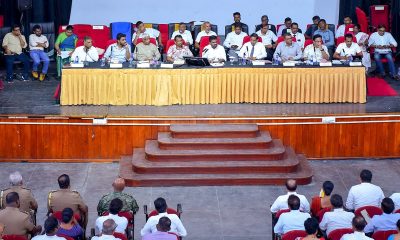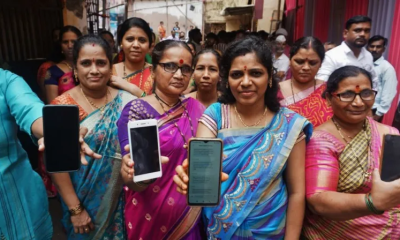News
Shocking lapses in revenue collection revealed
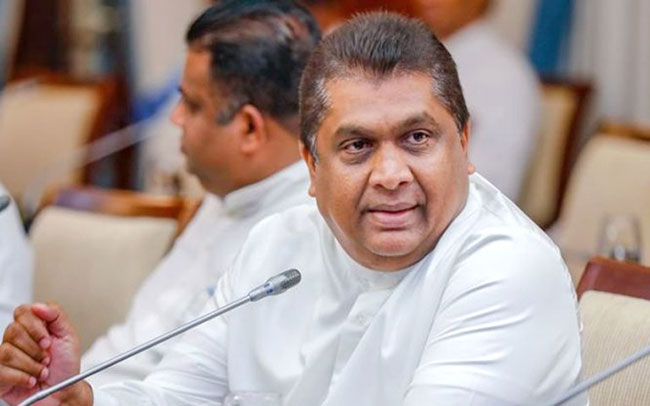
COPA concerned over Rs. 7.5 bn spent on upgrading integrated computer system
By Shamindra Ferdinando
Parliamentary watchdog-COPA (Committee on Public Accounts), in its latest report has highlighted significant loss of revenue and misuse of public money caused by the failure on the part of the Department of Inland Revenue, Sri Lanka Customs and Department of Excise to streamline their operations.
COPA Chairman Prof. Tissa Vitarana presented his first report to Parliament on July 20. The COPA consists of 22 members representing both the government and the Opposition. The COPA report dealt with the Auditor General’s reports on Department of Inland Revenue, Sri Lanka Customs and Department of Excise.
Pointing out that as at July 31, 2020, there had been 281 vacancies (10 percent of the approved cadre), the all-party committee asserted that failure to fill 183 senior level vacancies in the Inland Revenue Department would hinder the smooth functioning of the institution.
COPA has questioned the failure on the part of Sri Lanka Customs to recruit a suitable person to the post of Legal Officer. The vacancy hadn’t been filled in spite of the Management Services Department approving the creation of the post, it has pointed out.
COPA has observed that the Excise Department, too, in spite of receiving approval from the Management Services Department on June 30, 2020 failed to recruit a legal officer though it being an essential post. There had been 35 senior and 66 tertiary level positions among altogether 292 vacancies in what the watchdog committee called a vital part in overall revenue collection mechanism.
Asserting that the three above-mentioned institutions were responsible for the collection of 90 percent of government revenue, COPA alleged that the continuing failure to streamline operations contributed to corruption. It faulted these institutions for allowing what it called private parties to misappropriate public funds.
Former COPA Chairman and incumbent member lawmaker Lasantha Alagiyawanna yesterday (28) said that tangible measures were required to ensure proper collection of revenue. Acknowledging irregularities had undermined the whole process, the SLFPer explained how those responsible for revenue collection manipulated the system for their benefit at the expense of the national economy.
State Minister of Co-operative Services, Marketing Development and Consumer Protection Alagiyawanna said that the continuing registration of vehicles imported for a particular purpose as dual purpose vehicles was nothing but a crime. Lawmaker Alagiyawanna said that in spite of interventions made by parliamentary watchdogs, COPA, COPE (Committee on Public Enterprises) and COPF (Committee on Public Finance) the situation remained quite unsatisfactory.
Responding to another query, lawmaker Alagiyawanna said that relevant ministers should take remedial measures.
COPE member Dr. Harsha de Silva yesterday said that the government revenue was now at a paltry 9.2 percent of the GDP (Gross Domestic Production). One-time non-cabinet minister de Silva said that perhaps it was one of the lowest in the world.
Vitarana’s outfit has recommended urgent amendments to Acts pertaining to the Inland Revenue Department as well as Sri Lanka Customs to facilitate the revenue collection process. As regards Sri Lanka Customs and Motor Traffic Department, COPA underscored the urgent need to amend relevant Acts as existing laws seriously hindered revenue collection procedures. COPA also called for modification of existing laws pertaining to the Excise Department to enable the institution to achieve its primary objectives.
Pointing out that a vast sum of money had been spent on developing integrated computer systems, COPA underscored revenue collection mechanisms that couldn’t be perfected without the availability of such methods. COPA called for the development of what it called a National Coordination Plan meant for strengthening of the revenue collection process.
COPA revealed that a staggering Rs 4 bn had been spent so far on modifying/updating the system at the Inland Revenue and a further Rs 3.5 bn was required to complete the work. The 22-member COPA has expressed serious concern over the large amount of funding made available to still unfinished project.
News
The aim of the Government is to ensure a safe life for every citizen -President
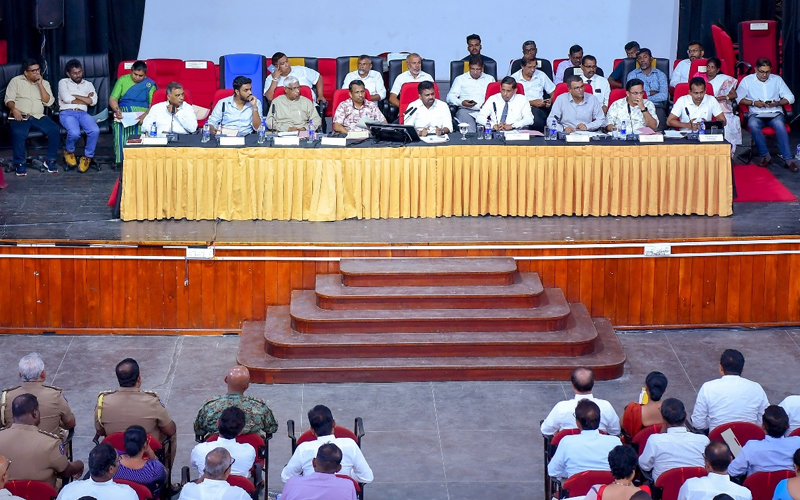
President Anura Kumara Dissanayake stressed that the aim of the Government is to ensure a safe life for every citizen and that it is everyone’s responsibility to act with proper supervision during the resettlement of the people.
The President instructed the relevant sectors to complete all necessary repairs before 31 December by utilising the allocations given by the Government for infrastructure development for this year and not to return any part of those allocations under any circumstances.
The President said that there is no shortage of funds required for relief to the people and for restoring normal life and that what is necessary in this emergency situation is for all institutions to fulfil their responsibilities through proper coordination without limitations.
President Anura Kumara Dissanayake made these remarks while participating on Monday (08) afternoon at the District Coordinating Committee meeting held at the Uva Province Library Auditoriam to review the programme being carried out to restore normalcy in the lives of the affected people in the Badulla District and to develop essential infrastructure. Due to the disaster situation, 64,140 individuals belonging to 19,133 families in the Badulla District have been affected. A total of 418 houses have been completely damaged and 7,703 houses have been partially damaged.
The President inquired separately into the programmes being carried out to restore essential infrastructure such as repairing damaged roads, electricity, water supply, communication, irrigation, restarting agriculture, the livestock sector, inland fisheries and restoring the health and education sectors, among others.
The President pointed out the need to carry out all road repairs simultaneously without dividing them as roads under the Road Development Authority, provincial roads, or local authority roads. He informed officials that if the funds allocated for this purpose are insufficient, they should request the required additional allocations.
The President also instructed that an estimate be prepared and submitted for all roads in the district requiring permanent repairs and noted that funds can be provided to commence this work by January.
Officials stated that, 90% of the district’s damaged electricity supply due to the disaster situation has already been restored and the remaining supply is also being restored swiftly. They further pointed out that steps have been taken to ensure the district’s water supply is provided as required.
The reopening of schools was also discussed and the President instructed that the Government’s allowance of Rs. 15,000 granted to affected schoolchildren be paid promptly through the intervention of Divisional Secretaries.
Due to the disaster situation, 6,711 acres of agricultural land in the Badulla District have been damaged. The President instructed that the relevant farmers and the extent of damaged land be identified, compensation be provided swiftly and they be directed back into cultivation.
He further instructed officials of the Irrigation Department to provide water to agricultural lands at least temporarily, so that the farmers will be able to harvest the Maha season. The President stated that the allowance of Rs. 25,000 provided for the cleansing and restoration of damaged temples and religious sites will be granted through the Department of Cultural Affairs and that a Cabinet decision regarding this matter is expected this week.
Lengthy discussions were held on providing compensation to destroyed and damaged houses and on the resettlement of the affected people. The President also highlighted the need to implement programmes aimed at improving the mental health of people living in camps.
President Dissanayake expressed his gratitude to the Tri-forces, Government officials and the public who are working with immense dedication in all these activities.
Participating in this occasion were the Chairman of the Badulla District Coordinating Committee and Minister of Agriculture and Rural Infrastructure, Samantha Vidyaratne; Chairman of the Badulla District Coordinating Committee and Governor of Uva Province, Attorney-at-Law Kapila Jayasekara; Deputy Minister of Trade, Commerce and Food Security, R. M. Jayawardena; Deputy Minister of Power and Energy, Arkam Iliyas; Deputy Minister of Youth Affairs, H. M. Dinindu Sampath Hennayake; Deputy Minister of Tourism, Professor Ruwan Ranasinghe; Members of Parliament Sarath Kumara, Ravindra Bandara, Sudath Balagalla, Kittnan Selvaraj, Ambika Samuel, Ajantha Gammaddege and Chamara Sampath Dasanayake, along with other ruling and opposition MPs; Chief Secretary of Uva Province, Ms. Anusha Gokula and representatives of Provincial Councils; Secretary to the Ministry of Finance, Dr. Harshana Suriyapperuma, together with senior officials of the Ministry of Finance; Badulla District Secretary Panduka Sri Prabath Abeywardena and other Government officials of the district, as well as representatives of the security services
Latest News
Death toll 635 as at 06:00 AM today [09]

The Situation Report issued by the Disaster Management Center at 06:00 AM today [09th December] confirms that 635 persons have died due to floods and landslides that took place in the country within the past two weeks. The number of persons that are missing is 192.
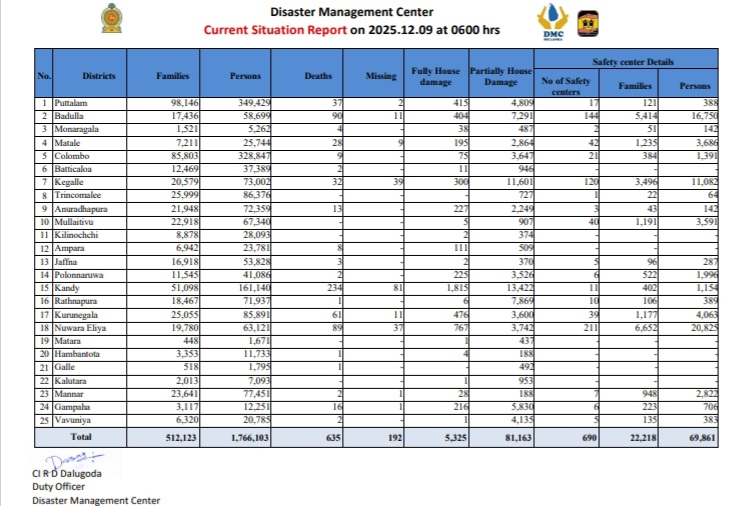
News
Cyclone Ditwah leaves Sri Lanka’s biodiversity in ruins: Top scientist warns of unseen ecological disaster
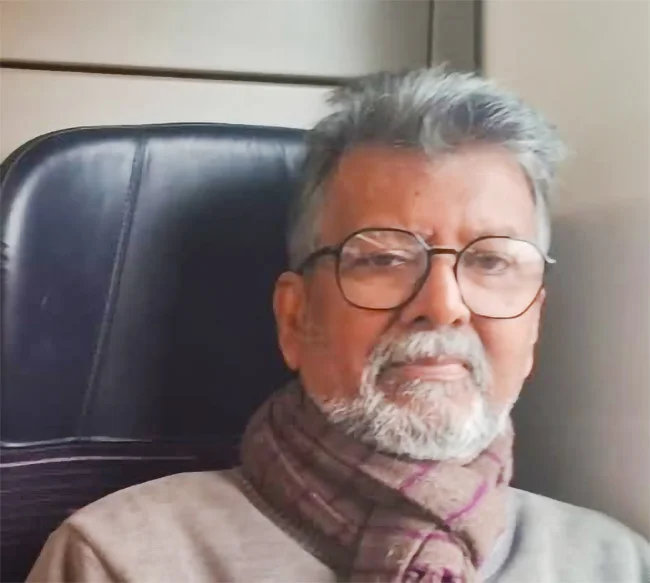
Sri Lanka is facing an environmental catastrophe of unprecedented scale in the wake of Cyclone Ditwah, with leading experts warning that the real extent of the ecological destruction remains dangerously under-assessed.
Research Professor Siril Wijesundara of the National Institute of Fundamental Studies (NIFS) issued a stark warning that Sri Lanka may be confronting one of the worst biodiversity losses in its recent history, yet the country still lacks a coordinated, scientific assessment of the damage.
“What we see in photographs and early reports is only a fraction of the devastation. We are dealing with a major ecological crisis, and unless a systematic, science-driven assessment begins immediately, we risk losing far more than we can ever restore,” Prof. Wijesundara told The Island.
Preliminary reports emerging from the field point to extensive destruction across multiple biodiversity-rich regions, including some of the nation’s most iconic and economically valuable landscapes. Massive trees have been uprooted, forest structures shattered, habitats altered beyond recognition, and countless species—many endemic—left at risk.
Among the hardest-hit areas are the Royal Botanical Gardens, Peradeniya, Seethawaka Botanical Garden, Gampaha Botanical Garden, and several national parks and forest reserves under the Department of Wildlife Conservation and the Forest Department. Officials describe scenes of collapsed canopies, destroyed research plots, and landscapes that may take decades to recover.
Prof. Wijesundara said the scale of destruction demands that Sri Lanka immediately mobilise international technical and financial support, noting that several global conservation bodies specialise in post-disaster ecological recovery.
“If we are serious about restoring these landscapes, we must work with international partners who can bring in advanced scientific tools, funding, and global best practices. This is not a situation a single nation can handle alone,” he stressed.
However, he issued a pointed warning about governance during the recovery phase.
“Post-disaster operations are vulnerable to misuse and misallocation of resources. The only safeguard is to ensure that all actions are handled strictly through recognised state institutions with legal mandates. Anything else will compromise transparency, accountability, and public trust,” Prof. Wijesundara cautioned.
He insisted that institutions such as the Department of Wildlife Conservation, the Forest Department, and the Botanical Gardens Department must take the lead—supported by credible international partners.
Environmental analysts say the coming months will be decisive. Without immediate, science-backed intervention, the ecological wounds inflicted by Cyclone Ditwah could deepen into long-term national losses—impacting everything, from tourism and heritage landscapes to species survival and climate resilience.
As Sri Lanka confronts the aftermath, the country now faces a critical test: whether it can respond with urgency, integrity, and scientific discipline to protect the natural systems that define its identity and underpin its future.
By Ifham Nizam
-
News6 days ago
Lunuwila tragedy not caused by those videoing Bell 212: SLAF
-

 News1 day ago
News1 day agoOver 35,000 drug offenders nabbed in 36 days
-

 News5 days ago
News5 days agoLevel III landslide early warning continue to be in force in the districts of Kandy, Kegalle, Kurunegala and Matale
-

 Business3 days ago
Business3 days agoLOLC Finance Factoring powers business growth
-

 News3 days ago
News3 days agoCPC delegation meets JVP for talks on disaster response
-

 News3 days ago
News3 days agoA 6th Year Accolade: The Eternal Opulence of My Fair Lady
-

 News1 day ago
News1 day agoRising water level in Malwathu Oya triggers alert in Thanthirimale
-

 Midweek Review6 days ago
Midweek Review6 days agoHouse erupts over Met Chief’s 12 Nov unheeded warning about cyclone Ditwah


